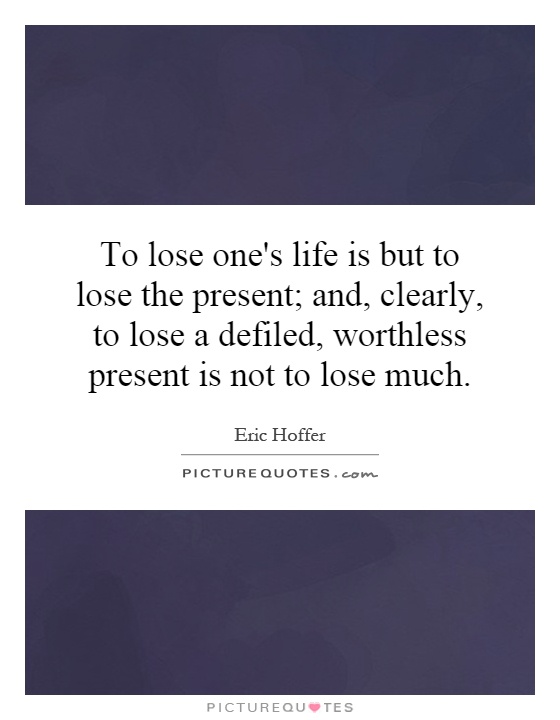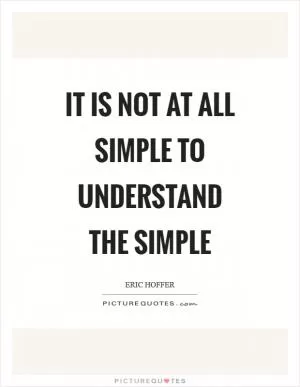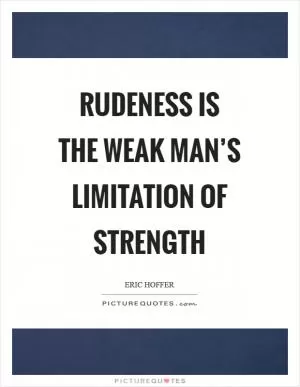To lose one's life is but to lose the present; and, clearly, to lose a defiled, worthless present is not to lose much

To lose one's life is but to lose the present; and, clearly, to lose a defiled, worthless present is not to lose much
Eric Hoffer, a renowned American philosopher and author, often explored themes of self-discovery, personal growth, and the pursuit of meaning in his works. The quote "To lose one's life is but to lose the present; and, clearly, to lose a defiled, worthless present is not to lose much" encapsulates Hoffer's belief in the transformative power of letting go of the past and embracing a new beginning.Hoffer believed that holding onto a "defiled, worthless present" only serves to hinder personal growth and prevent individuals from reaching their full potential. In his view, losing such a present is not a loss at all, but rather an opportunity to start anew and create a better future for oneself.
Hoffer's philosophy is rooted in the idea that true fulfillment comes from letting go of the past and embracing the present moment. By releasing attachment to negative experiences or toxic relationships, individuals can free themselves from the burdens of their past and open themselves up to new possibilities.
Hoffer's words also speak to the transient nature of life and the impermanence of all things. He believed that clinging to the past or worrying about the future only serves to distract us from the beauty and potential of the present moment. By letting go of what no longer serves us, we can fully immerse ourselves in the here and now, experiencing life in its purest form.
Ultimately, Hoffer's quote serves as a reminder to live in the present moment, free from the constraints of the past and the anxieties of the future. By embracing the present and letting go of what no longer serves us, we can create a life that is truly fulfilling and meaningful.












 Friendship Quotes
Friendship Quotes Love Quotes
Love Quotes Life Quotes
Life Quotes Funny Quotes
Funny Quotes Motivational Quotes
Motivational Quotes Inspirational Quotes
Inspirational Quotes